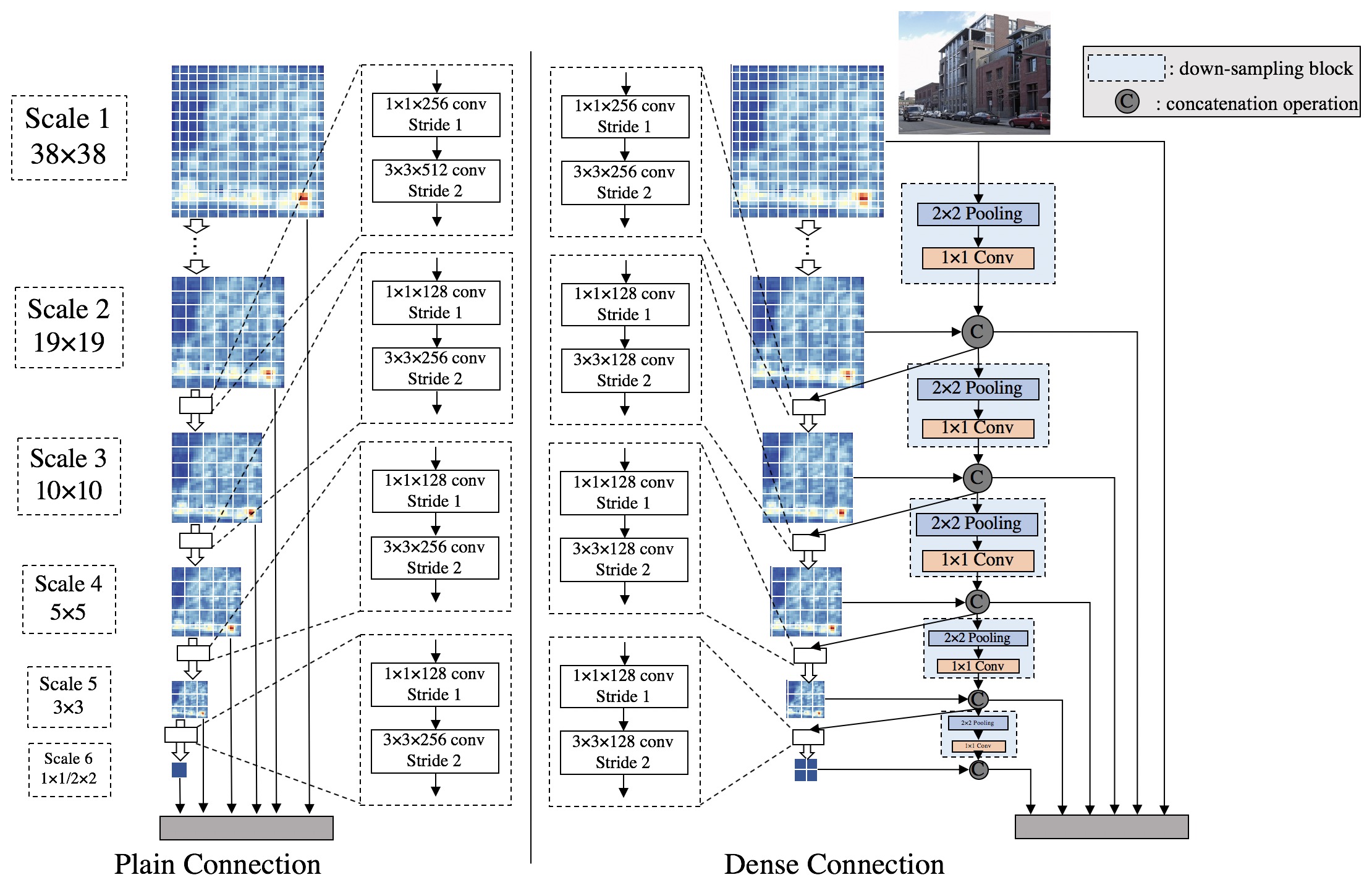DSOD: Learning Deeply Supervised Object Detectors from Scratch
We present Deeply Supervised Object Detector (DSOD), a framework that can learn object detectors from scratch. State-of-the-art object objectors rely heavily on the off-the-shelf networks pre-trained on large-scale classification datasets like ImageNet, which incurs learning bias due to the difference on both the loss functions and the category distributions between classification and detection tasks. Model fine-tuning for the detection task could alleviate this bias to some extent but not fundamentally. Besides, transferring pre-trained models from classification to detection between discrepant domains is even more difficult (e.g. RGB to depth images). A better solution to tackle these two critical problems is to train object detectors from scratch, which motivates our proposed DSOD. Previous efforts in this direction mostly failed due to much more complicated loss functions and limited training data in object detection. In DSOD, we contribute a set of design principles for training object detectors from scratch. One of the key findings is that deep supervision, enabled by dense layer-wise connections, plays a critical role in learning a good detector. Combining with several other principles, we develop DSOD following the single-shot detection (SSD) framework. Experiments on PASCAL VOC 2007, 2012 and MS COCO datasets demonstrate that DSOD can achieve better results than the state-of-the-art solutions with much more compact models. For instance, DSOD outperforms SSD on all three benchmarks with real-time detection speed, while requires only 1/2 parameters to SSD and 1/10 parameters to Faster RCNN. Our code and models are available at: https://github.com/szq0214/DSOD .
PDF Abstract ICCV 2017 PDF ICCV 2017 Abstract





 ImageNet
ImageNet